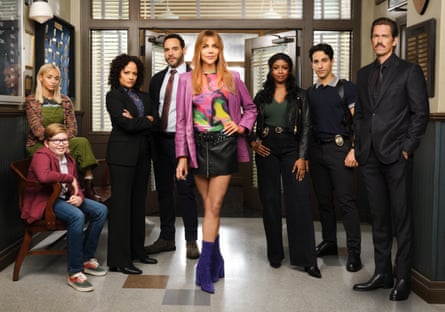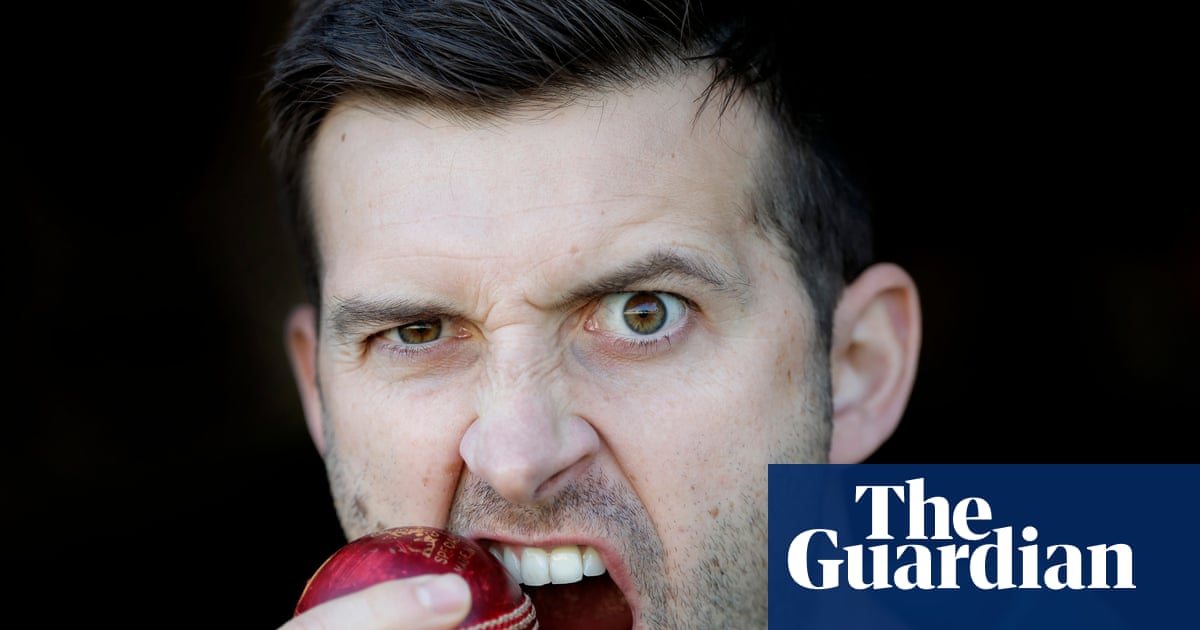Will we ever grow bored of the savant sleuth? I suspect not – the satisfaction of witnessing a fantastically gifted person crack absurdly complex cases is one of fiction’s most reliable draws. As ever, our screens are swarming with them: in the past year alone we’ve been introduced to Ludwig, David Mitchell’s puzzle-setter turned incredibly astute (if reluctant) detective; been reunited with Natasha Lyonne’s human lie-detector Charlie Cale in Poker Face; and crossed paths once again with brainiac attorney Elsbeth, whose forays into policing are chronicled in the Good Wife spin-off of the same name.
Also back for more mental gymnastics is Morgan Gillory, the protagonist of breezy procedural High Potential, which returns for a second season. With an IQ of 160 – giving her “high intellectual potential” (Mensa typically requires a score of about 130) – Morgan’s ability to unravel mind-bendingly complicated sequences of events is downright astonishing. Yet there’s something a little different about this particular clever-clogs crimestopper. Ever since an antisocial drug addict by the name of Sherlock Holmes set the genius detective tone, such characters have usually had a few issues. Ludwig is reclusive, his talents tempered by intense awkwardness. Cale is a chaotic, commitment-phobic outsider partial to a drink or two, while Elsbeth is a no-filter weirdo who gives people the creeps.
Morgan – played by Kaitlin Olson (It’s Always Sunny in Philadelphia, Hacks) – has no comparable weaknesses. When we first meet her she’s working as a cleaner in the offices of the LAPD. After accidentally knocking over a pile of investigation notes and spotting some serious errors, she leaves a clue behind to point the officers in the right direction. Soon, she’s recruited to work alongside the police, where she duly solves a series of extraordinarily labyrinthine crimes with practically no assistance. Morgan is not just inordinately smart, she’s also a fearless, charismatic, glamorous, gorgeous go-getter with flawless instincts and off-the-charts emotional intelligence. She may be a little pushy at times, but now she’s in the business of saving lives and catching killers, a bit of urgency isn’t exactly inappropriate.
If Morgan is practically perfect in every way, the same can’t be said for her life – initially, at least. A single mother of three, she struggles to make ends meet, and mostly uses her mind palace to get the most out of her coupon-assisted supermarket shop. Motherhood can, of course, stymie women’s professional lives, but Morgan’s willingness to put up with the demands and pay of a minimum-wage job doesn’t quite ring true. Similarly hard to buy is the show’s longest narrative thread: underpinning all her disparate cases is Morgan’s determination to track down the father of her eldest child, who disappeared without a trace 15 years ago. Despite her incredible powers of deduction, she hasn’t the foggiest idea where he is.

But High Potential isn’t overly concerned with realism. Made by ABC in the US, this is slick, narcotic network TV. It’s crowd-pleasing and easy on the eye, the sort of thing you’d traditionally associate more with ITV than BBC Two. Morgan’s new colleagues are uniformly nice, two-dimensional guys: suave detective Karadec (Daniel Sunjata), investigators Daphne and Oz, plus Lt Selena Soto (Scrubs’ Judy Reyes), possibly the most reasonable and least fearsome police chief in cop drama history. No antiheroes, no edge: the vibe is cosy and heartwarming and rather basic.
Obviously, the crimes aren’t cosy or heartwarming or basic. The season one finale saw Morgan taunted by a kidnapper who forced her to solve ludicrously difficult puzzles to save the lives of his victims. He returns in the opening double bill here, abducting a young mother on her way home from a night out – but his real target is clearly Morgan, whom he sees as a worthy opponent in his real-life game of chess. Watching her get tantalisingly close to outwitting this man is tense and thrilling, but something this out-there requires a watertight ending. The question is: is High Potential as clever as its protagonist?
In a word, no. The show is very good at keeping the suspense going, but it can’t quite stick the landing, and the storyline concludes with a preposterous gotcha. Still, there’s always next time. (In fact, Morgan’s subsequent case – although equally bananas – is better thought through, ending with a neat and surprisingly moving climax.) The quality of the plotting may be a tad inconsistent, but like her many predecessors and peers, this virtuoso citizen detective can always be relied upon to save the day.

.png) 1 month ago
40
1 month ago
40

















































